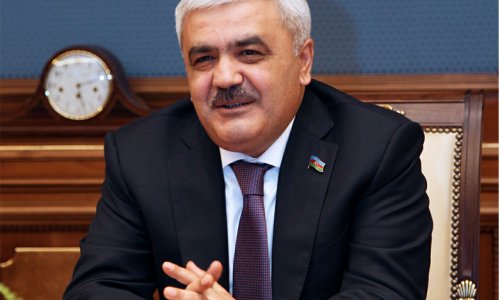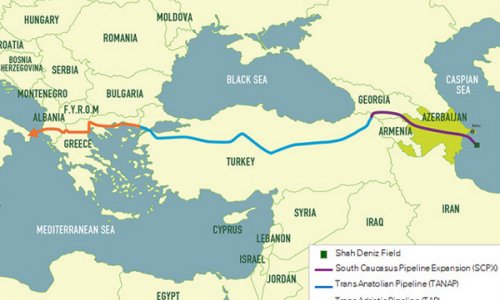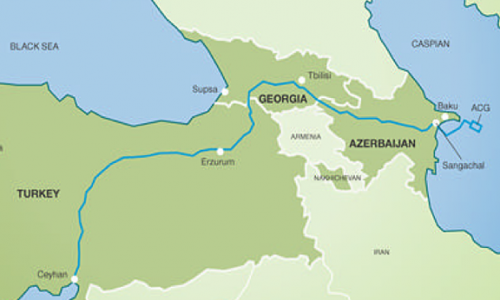Oil-rich Azerbaijan is being rattled by disruption and attacks on pipelines, highlighting its tough geopolitical position and adding to worries about falling oil prices.
Having been courted by previous US governments, international interest in Azerbaijan and fellow Caspian producer Kazakhstan has waned in recent years, not least because of the increase in US shale oil production. Azerbaijan’s oil production is, in any case, thought to have peaked.
But with 848,000 b/d of output last year, Azeri production still matters.
A reminder of the country’s precarious position came when neighboring Georgia said last month that South Ossetia, a Russian-backed separatist region within its territory, had expanded its de facto borders, taking in a short section of the BP-operated Western Route Export Pipeline (WREP).
The WREP runs from Azerbaijan to Georgia’s Black Sea coast and has a capacity of 100,000 b/d. BP said security issues meant it had already been unable to access part of the pipeline since a 2008 war over South Ossetia.
BP has long talked of rerouting the line — which last year was the target of two illegal taps in Georgia, one of which resulted in a spill of more than 12,000 liters of oil — but has yet to do so and is slashing spending on its Azeri operations. Azerbaijan is one of the top three locations BP is targeting for job cuts in response to the oil price slump, it has said.
Rising instability in Turkey is adding to Azerbaijan’s worries. On August 4, flows through the South Caucasus gas pipeline from Baku to Turkey were disrupted by an attack on an extension of the line in Turkey, one of a number of acts of sabotage recently against Turkish energy infrastructure.
However, Azerbaijan’s most prized pipeline, the 1.2 million b/d Baku-Tbilisi-Ceyhan (BTC) oil link, continues to operate normally, as it has since 2008. In that year the line was attacked in Turkey. Kurdish militants claimed responsibility. A few days later Russia dropped bombs near the pipeline in Georgia during the war there, but without damaging the line.
BTC’s resilience — it shipped nearly 750,000 b/d of oil in the first half of this year — to some extent vindicates claims it has been a force for stability, bringing together disparate nations.
Regardless of any resentment Russia may feel at Azerbaijan becoming a fully-fledged oil producer in its own right, Moscow’s close political and economic ties with Turkey make it unlikely to try to seriously disrupt BTC, at least for the time being, said Zaur Shiriyev, a fellow at the Royal Institute of International Affairs in London. Azerbaijan’s critics on the other hand argue that its oil wealth, and the increased defense spending it has enabled, have fueled tensions with the country’s enemy Armenia.
Azerbaijan is in any case careful to ensure it has alternatives to BTC, of which the WREP pipeline is one; the line is not particularly vital in day-to-day terms and there is no lack of crude in the Black Sea area.
Azerbaijan has also resumed sending small quantities of crude through a pipeline to the Russian port of Novorossiisk, where it is combined with Siberian Light exports. This follows a short-lived move in February 2014 to reverse the flow of the Azeri section of the pipeline, known as the Northern Route Export Pipeline, and instead use it to bring crude produced in Azerbaijan to Baku for shipment via BTC.
Pragmatism rules
Russia’s military intervention in Ukraine in 2014 has reinforced Azerbaijan’s tendency to avoid antagonizing Moscow — either by ending the decades-long shipment of crude to Novorossiisk or by siding with Georgia against Moscow, analysts have said.
Azerbaijan is showing similar pragmatism in allowing increasing volumes of oil from Kazakhstan and Turkmenistan to be shipped through BTC, which has ample spare capacity — it shipped around 90,000 b/d of Kazakh and Turkmen crude in July.
State-owned SOCAR is also strengthening its base with projects overseas, including construction of the 214,000 b/d STAR refinery on Turkey’s Aegean coast, which is due to start production in 2018 and expected to process Urals and Iraqi crude.
However Shiriyev described the consequences for Azeri state finances of international oil prices falling below $45/b as "catastrophic.” And Azerbaijan cannot but be alarmed by instability near its borders, be it in Iraq, Syria or Turkey.
Shiriyev also voiced doubts about Georgia’s internal political settlement as that country approaches parliamentary elections next year. "Any negative development [in Georgia] affects Azerbaijan,” he said.
Like other Caspian countries, Azerbaijan has reached out to southern neighbor Iran in anticipation of that country’s economy reviving once international sanctions are lifted. Iran has long supplied oil and gas to Azerbaijan’s Nakhchivan region, which is cut off by the conflict with Armenia.
(blogs.platts.com)
www.ann.az
Follow us !











